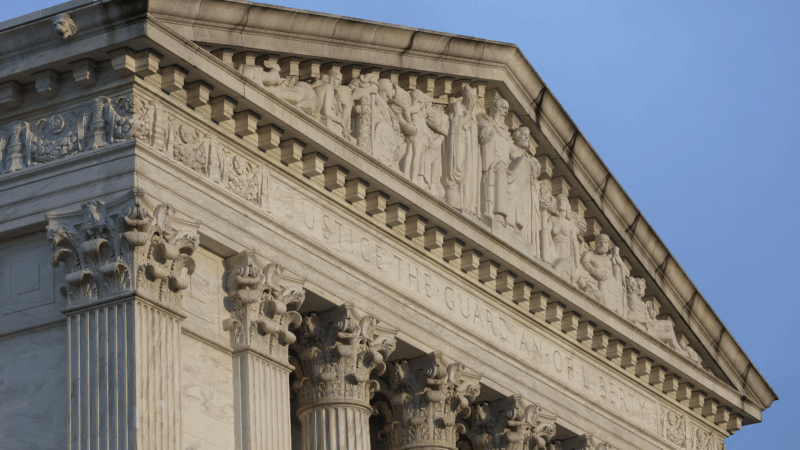Supreme Court to hear challenge to Trump’s birthright citizenship order in May
The U.S. Supreme court Thursday deferred any ruling on President Trump’s claim that there is no automatic guarantee to birthright citizenship in the Constitution.
The court said it would hear arguments in the case on May 15, with a decision likely by late June or early July.
The court gave no indication that it plans to consider other related question raised by the Trump administration, which complained to the court that about the ability of single district court judges to issue rulings that cover the entire country in cases like this one.
To date, every court to have considered Trump’s executive order banning birth right citizenship, issued on day one of his administration, has blocked it. But he has doggedly persisted in his contention that birthright citizenship is unconstitutional, an idea widely considered a fringe view because the Supreme Court ruled to the contrary 127 years ago, and that decision has never been disturbed.
A group of states challenged Trump’s order, contending that the right to birthright citizenship is not, even remotely, an open question. As they put it in their Supreme Court brief: “For over a century, it has been the settled view of this court, Congress, the Executive Branch, and legal scholars that the Fourteenth Amendment Citizenship clause guarantees citizenship to babies born in the United States, regardless of their parents’ citizenship, allegiance, domicile, immigration status or nationality.”
The 14th amendment says: “All persons born or naturalized in the United States, and subject to the jurisdiction thereof, are citizens of the United States.” Trump, however, has long argued that there is no such thing as automatic citizenship, at least not for all children born in the U.S.
Federal district court judges in three different states have forcefully rejected that view and blocked Trump’s executive order voiding birthright citizenship. And three separate appeals courts have refused to unblock those court orders. Judge John Coughenour, a Reagan appointee in Washington state, was the first judge to block Trump’s executive order, calling it “blatantly unconstitutional.”
Even the Trump administration’s lawyers seemed to acknowledge the shaky ground they were standing on. Rather than ask the justices to outright reverse the lower courts, they instead asked the justices to narrow the lower court orders so that the administration could at least begin planning to put into effect its new policy against birthright citizenship.
House Dem. Leader Jeffries responds to air strikes on Iran by U.S. and Israel
NPR's Emily Kwong speaks to House Minority Leader Hakeem Jeffries (D-NY), who is still calling for a vote on a war powers resolution following a wave of U.S.- and Israel-led airstrikes on Iran.
Iran’s Ayatollah Ali Khamenei is killed in Israeli strike, ending 36-year iron rule
Khamenei, the Islamic Republic's second supreme leader, has been killed. He had held power since 1989, guiding Iran through difficult times — and overseeing the violent suppression of dissent.
Found: The 19th century silent film that first captured a robot attack
A newly rediscovered 1897 short by famed French filmmaker Georges Méliès is being hailed as the first-ever depiction of a robot in cinema.
‘One year of failure.’ The Lancet slams RFK Jr.’s first year as health chief
In a scathing review, the top US medical journal's editorial board warned that the "destruction that Kennedy has wrought in 1 in office might take generations to repair."
Here’s how world leaders are reacting to the US-Israel strikes on Iran
Several leaders voiced support for the operation – but most, including those who stopped short of condemning it, called for restraint moving forward.
How could the U.S. strikes in Iran affect the world’s oil supply?
Despite sanctions, Iran is one of the world's major oil producers, with much of its crude exported to China.




